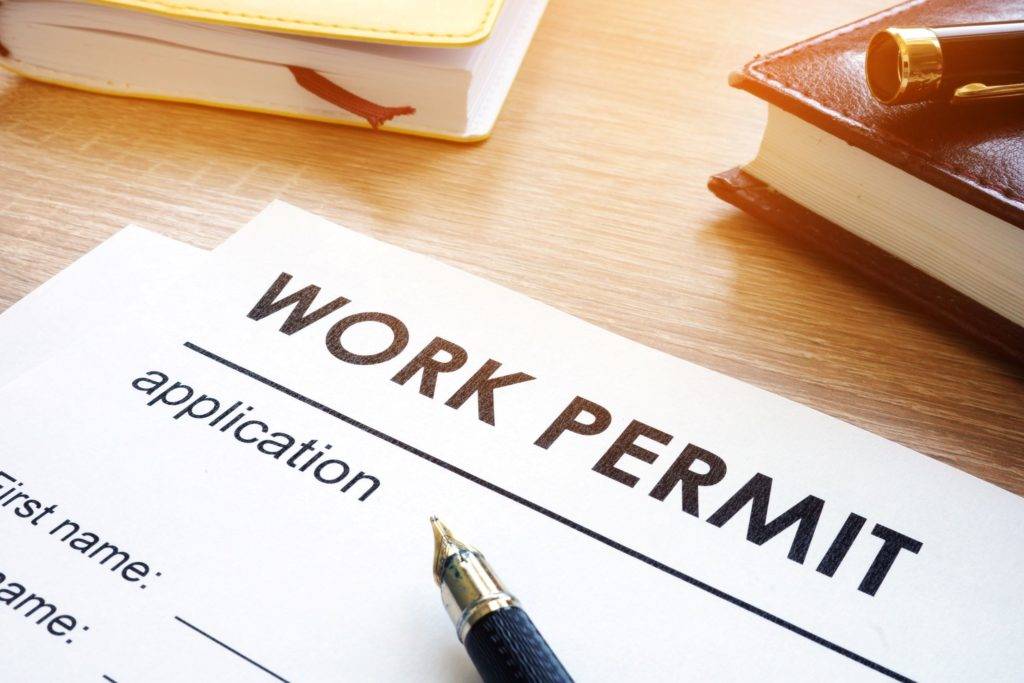If you’re a new immigrant to the UK and need a personal loan, you might be wondering where to start. The process can seem complicated without much credit history or established income in the UK, but getting a personal loan as a newcomer is possible.
This guide will walk you through each step, from understanding what lenders look for to gathering the proper documents. With a few simple steps, you’ll be ready to apply for a loan and get the financial support you need as you settle into your new life in the UK.
Read: How to Open a Bank Account in the UK as a New Immigrant: A Step-by-Step Guide
Understanding Personal Loans in the UK
As a new immigrant in the UK, personal loans can help with settling-in costs, unexpected expenses, and education. Knowing about the different types can aid your financial decisions.

What Is a Personal Loan?
A personal loan is a specific amount of money from a lender like a bank, credit union, or online lender. You repay this amount in fixed monthly installments over an agreed period, plus interest. Most personal loans in the UK are unsecured, meaning you don’t need to provide collateral, such as a home or car. Instead, lenders assess your creditworthiness and income to determine your eligibility.
Why Get a Personal Loan?
Personal loans can be beneficial for new immigrants facing various financial demands. You might consider taking out a personal loan for reasons such as:
- Settling-in Expenses: Moving to a new country often involves costs like rent, furniture, or utility deposits. A personal loan can help you cover these initial expenses.
- Unexpected Bills: Life can be unpredictable. A sudden medical expense or car repair might require immediate funds, and a personal loan can provide quick financial relief.
- Education Costs: If you plan to continue your studies or need training for a new job, a personal loan can help finance tuition or other educational expenses.
- Flexible Repayment Terms: Personal loans typically come with various repayment options. You can choose a term that matches your financial situation, making it easier to manage your monthly budget.
Types of Personal Loans Available
When considering a personal loan, it’s essential to know the different types available:
- Unsecured Loans: These loans rely solely on your credit score and income for approval. They are often quicker to obtain and do not require collateral.
- Secured Loans: Backed by an asset like a car or property, secured loans may offer lower interest rates because they carry less risk for the lender. However, the lender can claim the asset if you fail to repay.
- Guarantor Loans: A guarantor loan may be an option if you don’t have a credit history in the UK. A friend or family member can act as a guarantor, agreeing to repay the loan if you cannot. This can improve your chances of approval.
Understanding these basics will guide you through the loan process more effectively, giving you the tools to make informed decisions as you establish your life in the UK.
Eligibility Requirements for New Immigrants
Most lenders in the UK have basic eligibility requirements for personal loans:
- You must be at least 18 years old.
- You need a valid UK address and residence permit.
- You must have a UK bank account.
- Proof of identity (e.g., passport) is required.
Income and Employment Requirements
A steady income is essential to qualify for a personal loan. Although specific income requirements vary, most providers prefer applicants with a stable job or reliable self-employment earnings. Key factors they often consider include:
- Monthly or annual income to determine if you can afford repayments.
- Employment length to ensure job stability.
Credit History Considerations
As a new immigrant, not having a UK credit history can make it harder to get loan approval. If you’re just starting, consider applying for smaller loans or a credit-building card to establish credit. Paying bills on time and keeping your credit usage low can gradually build a strong credit history, increasing your chances of loan approval.
Documents Needed to Apply for a Personal Loan
- Proof of Identity and Address
- Lenders require proof that you are who you say you are and that you live in the UK. Common documents include:
- Passport or UK residence permit.
- Utility bills or rental agreements for proof of address.
- Lenders require proof that you are who you say you are and that you live in the UK. Common documents include:
- Income Verification
- To prove you have a reliable income, you’ll need:
- Recent pay slips or employment letters.
- Bank statements showing regular deposits.
- Tax records if you’re self-employed.
- To prove you have a reliable income, you’ll need:
- Additional Supporting Documents
- Some lenders may ask for additional documents, like:
- References from past lenders or landlords.
- Guarantor details if using a guarantor loan.
- Some lenders may ask for additional documents, like:
Read: Self-Employment vs Employment in the UK: Pros, Cons, and Visa Implications
Steps to Apply for a Personal Loan
Applying for a personal loan as a new immigrant can be straightforward if you know the steps involved. Here’s a simple, detailed guide to help you through the process smoothly:

1. Check Your Credit Score
Start by checking your UK credit score to see where you stand. Services like Experian or ClearScore offer free credit reports, allowing you to view what lenders will consider when assessing your application. If you have little or no UK credit history, be aware that this may affect the offers you receive.
2. Research and Compare Loan Options
Lenders vary widely in terms of interest rates, fees, and repayment terms. Compare options from high-street banks, online banks, and credit unions. Look for:
- Interest Rates (APR): This percentage reflects the total cost of the loan, so a lower APR means a lower price.
- Repayment Terms: Find a loan term that fits your budget, ensuring monthly payments are manageable without strain.
Using comparison sites can simplify this step, giving you a clearer view of what each option offers.
3. Choose a Reputable Lender and Apply
Once you’ve found the best loan, apply online or in person. Always confirm that the lender is reputable by checking reviews, accreditations, or official regulatory bodies to avoid scams. Choosing a legitimate provider will protect you from unexpected issues down the line.
4. Gather and Submit Required Documents
Be prepared to submit documents like proof of income, identification, and proof of address. Double-check that each document is recent and easy to read, as outdated or unclear files can delay your application.
5. Await Approval and Carefully Review the Terms
Approval times vary by lender. Once you receive an offer, read through the terms in detail. Pay attention to:
- Repayment Schedule: Ensure the payment dates and amounts work with your budget.
- Interest Rate and Fees: Confirm if the rates and any additional fees match what was initially offered.
- Early Repayment Options: Check for any penalties for paying off the loan early, which can be helpful if your financial situation improves.
You can sign once you’ve reviewed the terms and feel comfortable with them. By following these steps, you’ll be better prepared to apply for a loan confidently and make a choice that supports your financial goals.
Tips for Getting Approved for a Loan as a New Immigrant
Getting loan approval as a new immigrant is possible with the right approach. Here are some helpful strategies:

- Build a Good Credit Score Early: Consider applying for a credit-building card or starting with smaller loans. Paying your bills on time and keeping debt low will improve your credit score.
- Consider a Guarantor: If you’re struggling to get approved due to a lack of credit history, consider a guarantor loan. A guarantor, usually a friend or family member with a good credit score, can improve your approval chances.
- Start with Smaller Loans: Lenders may be more willing to approve a smaller loan if you’re new to the country. Successfully paying off a smaller loan can help build your credit profile and make it easier to get larger loans in the future.
- Show Proof of Stable Income: Consistent employment or reliable self-employment income can make you more appealing to lenders. Provide income records from your previous country to demonstrate your financial stability.
- Maintain a Healthy Bank Balance: Lenders may review your bank account history to assess your financial habits. Consistently maintaining a good balance can increase their confidence in your ability to manage loan repayments.
Read: How to Avoid UK Visa Scams: A Comprehensive Guide
Alternative Financing Options for New Immigrants
If standard personal loans aren’t readily available, explore these alternative options:
- Credit Unions: Credit unions are member-owned institutions that may offer lower interest rates and more lenient eligibility requirements, making them an ideal option for new immigrant
- Secured Loans: A secured loan can be an option if you own a valuable asset. Since these loans are backed by collateral, lenders may be more willing to approve them despite limited credit history.
- Community-Based Loan Programs: Some UK charities and local councils offer low-interest loans for specific purposes, such as housing or education, often designed to support new residents.
- Peer-to-Peer Lending: Some platforms connect borrowers directly with individual lenders. Although interest rates may vary, peer-to-peer lending can be a viable alternative for those with limited credit history.
- Microfinance Institutions: Some smaller institutions specialize in loans for individuals without strong credit backgrounds. They may offer smaller loan amounts with manageable interest rates, helping you meet short-term needs.
Common Mistakes to Avoid When Applying for a Loan
Avoid these common mistakes to have an easy and less stressful loan process:
- Applying to Multiple Lenders at Once: Each loan application can affect your credit score. Applying to multiple lenders within a short time frame may make you appear risky to future lenders.
- Not Understanding Loan Terms: Read all terms and conditions carefully. Watch for hidden fees, such as early repayment penalties, that could increase the cost of your loan.
- Taking on Unaffordable Loan Amounts: Only borrow what you can comfortably repay. Taking on a larger loan than you need can lead to financial stress if repayments become too high.
- Overlooking Smaller Loan Providers: Big banks aren’t the only option. Local credit unions and smaller financial institutions may have more flexible terms for new immigrants, increasing your chances of getting approved.
- Ignoring Loan Repayment Options: Look into repayment terms that suit your income schedule, whether bi-weekly or monthly. Many lenders are flexible, and choosing the right plan can make loan management easier.
Securing a personal loan as a new immigrant in the UK requires preparation, patience, and the right approach. Start by understanding eligibility, gathering the required documents, and comparing lenders and loan options.
With responsible financial behavior and the right steps, you can build a strong credit history and make your loan application process more manageable. Take time to research and plan, and you’ll be more confident and better prepared to find the right loan.















Hello